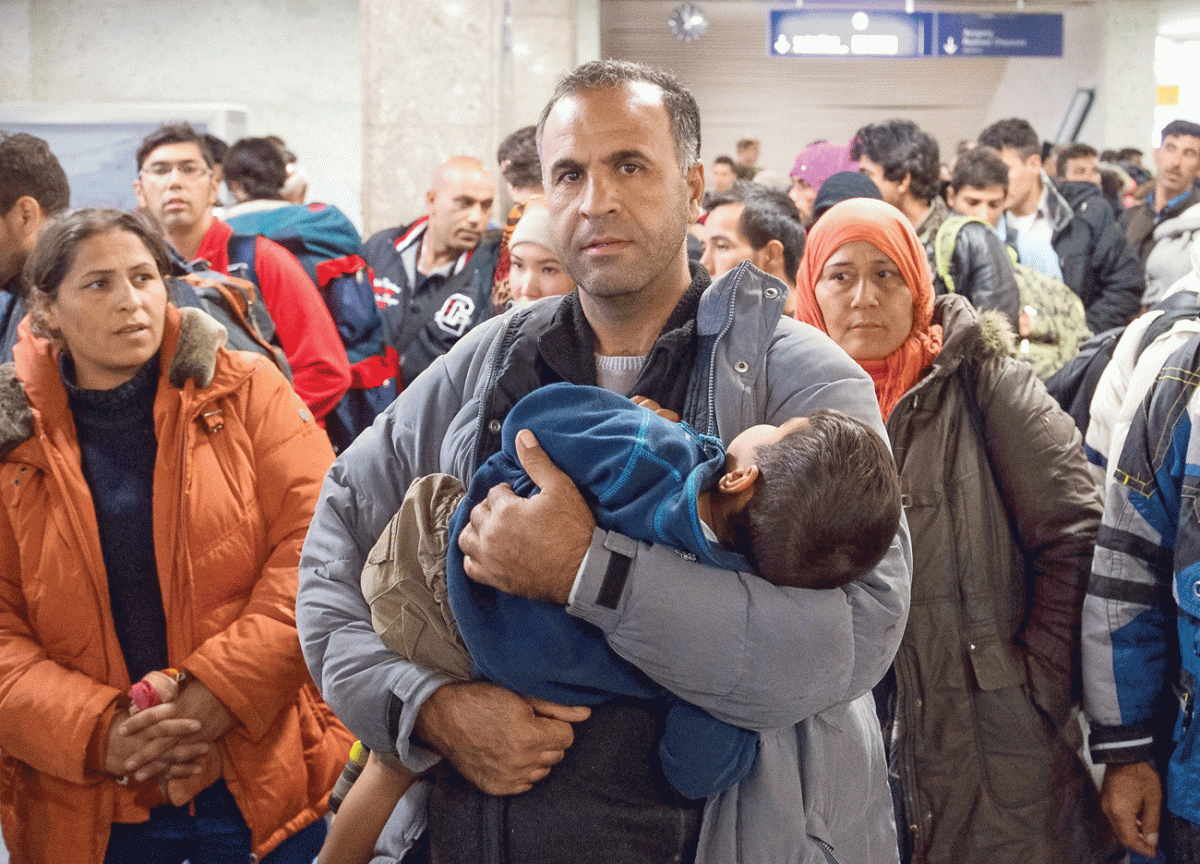

BERLIN: Germany plans to set aside ¤5bn ($5.6bn) in windfall income this year to help cover the cost of looking after asylum seekers in 2016 while sticking to its promise of keeping the budget balanced.
According to a draft supplementary budget obtained yesterday, the government plans to park unexpectedly high revenue from taxes and auctioning mobile telephone licences in a special fund.
The money would then be released next year to the government and 16 federal states to cope with the influx of migrants, which is forecast to reach 800,000 in 2015 alone.
The huge number of people fleeing war and poverty in the Middle East, Asia and Africa has forced the government to take a new look at its budget plans.
Finance Minister Wolfgang Schaeuble has said he is still aiming to maintain a balanced budget next year. But some lawmakers have questioned whether that will be possible given the rising costs associated with the migrant crisis.
A balanced budget should be comfortably achieved this year thanks to a buoyant economy which has boosted tax income.
However, with the prospects for the coming years less certain, the cabinet will consider the supplementary budget on Tuesday under a broader package of measures to cope with the asylum seekers.
Under Germany’s budget law, funds unspent at the end of the year should be used to repay debt. Instead, the government wants to hold over the windfall to 2016 in the hope of meeting the costs of the crisis, which range from social housing to looking after unaccompanied minors, without sliding back into a deficit.
Chancellor Angela Merkel announced last week that the government would pay the states ¤670 each month for every asylum seeker they took in.
German public opinion has been divided on the rising numbers of new arrivals, with some warmly welcoming them but others concerned about how they can be integrated.
The government is under heavy pressure to spend more on improving infrastructure but under the supplementary budget this year’s windfall income would be directed to the migrant crisis.
Meanwhile, Germany’s president has warned that there are limits to how many refugees his country can absorb as it prepares for as many as 800,000 arrivals this year, showing growing concern even at the highest level over how to look after so many newcomers.
“We want to help. We have a big heart. However, there is a limit to what we can do,” President Joachim Gauck, a former rights activist in communist East Germany, said in a speech on Sunday evening.
“Our ability to take in people is limited, although we don’t know yet where those limits are,” he added.
The comments from the head of state, who has a largely ceremonial role but whose words carry moral authority, appeared to be striking a more cautious tone than Merkel who has said Germany can cope with the record influx.
The government declined to respond directly to Gauck’s comments, reflecting political convention, but defended its handling of the situation.
“The German government and the chancellor are convinced that protection has to be given to those who need it, whether they are persecuted for political reasons or fleeing war,” said government spokesman Steffen Seibert.
The debate came amid signs of growing tension among asylum seekers, part of a wave of mass migration into the European Union from the Middle East and parts of Africa.
Fourteen people were injured on Sunday when a brawl broke out between two rival groups in a refugee centre in the western German town of Calden, police said. The refugees were being housed in tents set up on a disused airfield.
A union representing German police officers has suggested that refugees should be divided according to their religion to try to reduce the risk of conflict.
Germany has reintroduced border controls with EU neighbours to try to regulate the flow of people after initially throwing open its doors to refugees from Syria.
“The German government stands by its decision to now introduce signs of order into the process for the arrival and the admission of refugees,” Seibert added.
Merkel’s bold open-door policy for refugees has sparked a backlash in her conservative ranks, and a rare dip in her usually sky-high popularity ratings.
After the party-like atmosphere of recent weeks when volunteers euphorically welcomed Syrians at train stations, many have now begun more soberly reflecting on what it will mean to accept up to one million newcomers this year. Some lawmakers in Merkel’s conservative bloc have openly criticised the gamble she has taken as she nears a decade in power, reflecting growing unease in the electorate.
Merkel, usually voted Germany’s most popular politician, slipped to fourth spot on the scale published by news weekly Der Spiegel.
“In the party and among the rank-and-file, the euphoria is nowhere near as large as in the party leadership and the chancellery,” said lawmaker Klaus-Peter Willsch of her Christian Democratic Union (CDU).
He criticised the leadership’s “feel-good speak” and mantra-like promises that “we will somehow manage this”, pointing to existing problems in integrating migrant groups, in comments to the Passauer Neue Presse daily.
“The chancellor’s statements haven’t made life any easier,” said Erika Steinbach, CDU human rights spokeswoman, adding that citizens now expected their leader to halt the influx.
Last week 25 conservative lawmakers in a joint statement said that “invitations for all the world’s refugees to come to Germany could overburden our society”.
News weekly Die Zeit said “Merkel’s decision to open Germany to the refugees may have been the most spectacular and most far-reaching of her chancellorship”.
Agencies




